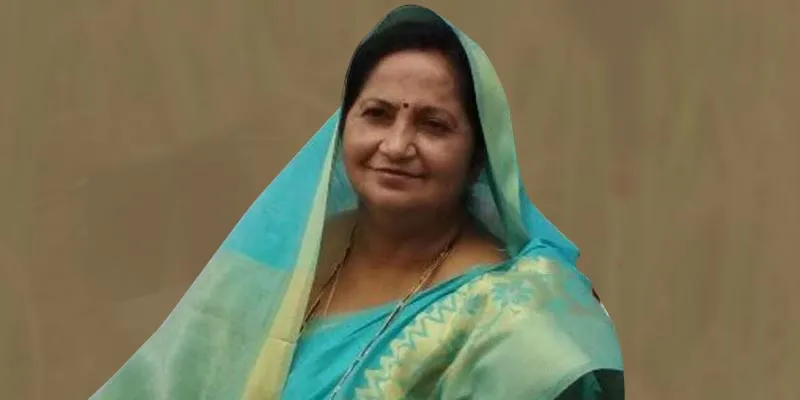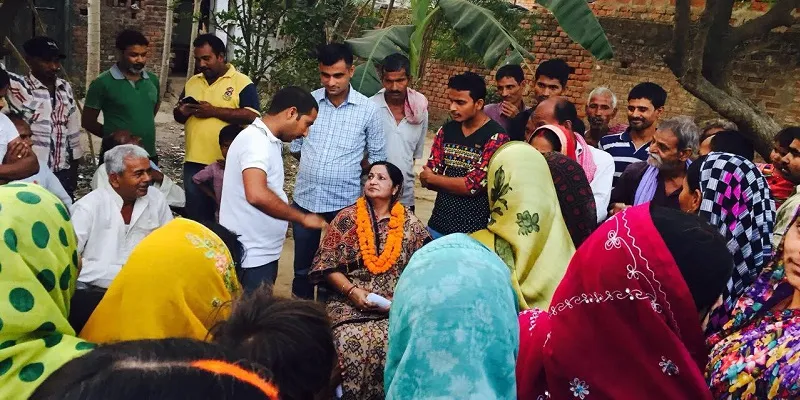This mukhiya from Bihar is on a mission against corruption, other social evils
Shweta Singh, the mukhiya of Sakkadi and Narhi in Bihar’s Bhojpur district, has transformed the earlier backward villages.
On a cold foggy October morning in Sakkadi village of Bihar’s Bhojpur district last year, Parvati Devi, a daily wage worker from the Dalit community, was waiting to meet the newly elected village mukhiya, Shweta Singh.
When Parvati’s husband, Harinath, was healthy, the family was comfortable financially. However, Harinath fell prey to leprosy in 2013, leaving him 80 percent disabled, and making Parvati the sole breadwinner of the family.
At the mukhiya’s residence, Parvati finds Shweta surrounded by a dozen villagers. When her turn comes, she tells the village head about her problem. A few kind words and Shweta makes a note in her register and tells Parvati that her husband is eligible for pension under the government’s social security scheme.
Parvati leaves her husband’s name and bank account details with Shweta and also fills up a form for the scheme as directed. So far, Parvati had been unaware of any welfare schemes.
A month later, Parvati started receiving Rs 500 in Harinath’s bank account, which went a long way in paying for his medication and some expenses of the family.
Not just Parvati, but 30 widows, 10 disabled people, and 40 senior citizens in Sakkadi village are receiving pension under various schemes of the government. Lack of awareness, bureaucratic delays, and corruption had been the biggest hurdle for most of these people.

Things, however, have changed since 52-year-old Shweta was elected as the village mukhiya in May 2016.
In many villages, systemic corruption had kept development and people’s welfare at bay and Shweta says bringing change at the grassroots level was her top priority to start. “I created investigating teams to root out the practice of demanding bribes for basic bureaucratic work. There were also several funds allotted towards development projects that were languishing unused. I had to face a lot of red-tapism to get them released,” she recalls.

The trailblazing mukhiya
Shweta is among a new breed of women mukhiyas in Bihar who are out to make a difference.
A post-graduate, she is the most educated woman mukhiya from Sakkadi and Narhi. With 50 percent reservation for women in panchayats, many have been contesting elections and are being voted to power. However, many still see their husbands wielding power, and taking decisions in their name.
This practice, though, is changing slowly but surely. Shweta’s husband, a former mukhiya himself, is highly supportive of her work and does not interfere with her duties.

To empower women in her village by helping them earn a livelihood, Shweta has set up tailoring jobs for women of the villages. Also, she has facilitated the building of thousands of toilets and she is looking forward to her area being declared open-defecation free.
We have volunteers with whistles to deter those who still venture out in the open!
she says with a laugh.
Read also: What is one thing that is common between Mary Kom, Smriti Irani and Sushma Bhadu?
Educate a woman, educate a generation
Shweta’s next project now is to build a high school in Sakkadi. She says, “Many girls drop out after seventh grade since there are no high schools locally, and parents are not comfortable sending their daughters too far. If we have a high school here, I am hopeful literacy among girls will greatly improve.”

Shweta also has plans to tie up a rural sanitary napkin manufacturer, with the twin objectives of making quality menstrual hygiene products accessible in the area, while also increasing earning opportunities for women.
Shweta has also initiated water conservation through rainwater harvesting, as laying water pipes to every part of the country is a time-taking process. Rainwater harvesting has proven to be very beneficial for farmers who were dependent on intermittent rainfall until now.
Mahatma Gandhi had once said,
Panchayat Raj represents true democracy realised. We would regard the humblest and the lowest Indian as being equally the ruler of India, with the tallest in the land.
With mukhiyas like Shweta, our villages could soon become as envisioned by the Father of the Nation.
With inputs from Sneh Singh







